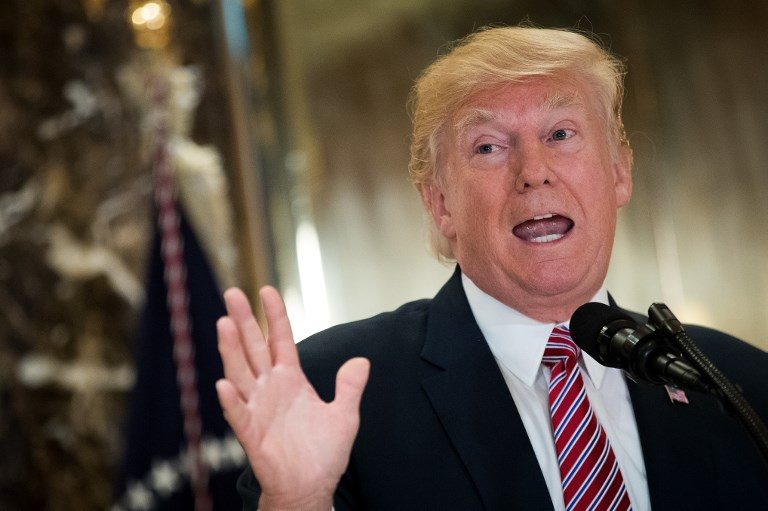SUMMARY
This is AI generated summarization, which may have errors. For context, always refer to the full article.

MEXICO CITY, Mexico (UPDATED) – The United States, Mexico and Canada dove into the details of revamping the North American Free Trade Agreement at a second round of talks Friday, September 1, amid threats from President Donald Trump to axe the deal.
After setting an ambitious “accelerated” calendar during the first round – held in Washington last month – negotiators got down to the nitty gritty of updating the 1,700-page deal as 5 days of closed-door talks opened at Mexico City’s swank Hyatt Regency hotel.
There are 25 issues on the agenda for this round, each being discussed at a separate roundtable, including e-commerce, the environment, anti-corruption measures, investment and access to property markets.
The thorny issue of “rules of origin” is also on the list, the Mexican economy ministry said.
The United States is pushing to change these rules, including those governing the hotly debated auto sector. It wants to require a certain percentage of cars’ components to be built in the US in order to remain duty-free.
Few details were expected to emerge from the discussions. All 3 countries have agreed to keep mum on specifics until the talks conclude after an estimated 7 to 9 rounds.
Failure is an option
Trump, who demanded the renegotiation, says NAFTA has been disastrous for US industry and jobs.
He doubled down on his anti-NAFTA rhetoric in the build-up to the second round, saying Mexico was “being difficult” and that the United States would “end up probably terminating” the deal.
Mexico, which sends 80% of its exports to the United States, has dismissed such threats as posturing.
But it says it has a Plan B just in case, focused on diversifying its export destinations.
Trump himself has sent mixed signals about the deal.
On Thursday, August 31, he and Canadian Prime Minister Justin Trudeau spoke on the phone and “stressed their hope to reach an agreement by the end of this year,” according to the White House.
Most experts say NAFTA is likely to survive with modest changes – though with Trump, nothing is certain, they warn.
However, the Republican president may ultimately have little room to maneuver, no matter how much he hates the $64 billion US trade deficit with Mexico: some 14 million US jobs depend on trade with Mexico and Canada, according to the US Chamber of Commerce.
“As long as discussions on the technical issues are moving forward, it’s a good sign. We hope to separate the political issues from the technical issues,” said Moises Kalach of Mexico’s Business Coordinating Council.
Symbol of globalization
Instituted in 1994, NAFTA eliminated most tariffs across a region representing some 28% of the global economy.
To supporters, it has been instrumental in creating tightly integrated supply chains that ensured North America’s competitiveness at a time of Asia’s rise as an economic power.
To opponents, it is synonymous with the dirty word of globalization and the ills they say it has wrought – the decline of US manufacturing might, to some; to others, multi-national corporations’ drive for ever-cheaper workers and ever-lower labor standards.
Some 200 workers and activists protested outside Mexico’s Congress Friday, condemning their government’s “sell-out” to neoliberalism.
“We’re here to tell them we’ve got our eye on them, because the bottom line on the past 23 years is not good,” said protest organizer Enrique Fabela.
Canadian labor leader Jerry Diaz, head of private-sector union Unifor, urged Mexican workers to stand up for their rights.
“I don’t buy the argument that the Mexican negotiators are making that somehow we have to keep our citizens living in poverty in order to get jobs. That’s a nonsense argument,” he said.
“In Canada and the United States, autoworkers can pay for the cars that they make. In Mexico they never can. That’s wrong.”
Mexico is facing pressure to overhaul its labor laws and deliver wage increases to factory workers who make an average $2.30 an hour, or about one-tenth the average US factory wage.
The US trade balance with Canada is more even, but that relationship also has points of tension in some sectors, including dairy products, wine and grains. – Rappler.com
Add a comment
How does this make you feel?
There are no comments yet. Add your comment to start the conversation.